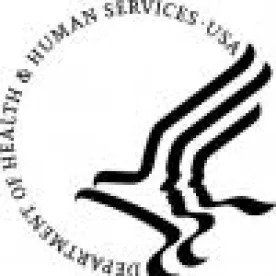HHS Argues Pharmaceutical Proposal Involves Quid Pro Quo Exchanges
On March 7, 2023, the US Department of Health and Human Services (HHS) filed a motion to dismiss and for summary judgment in Virginia federal court. Plaintiff Pharmaceutical Coalition for Patent Access, a charitable organization, alleges that HHS’s Office of the Inspector General (OIG) inappropriately prohibited them from receiving funding from a pharmaceutical manufacturer to provide relief to patients who cannot afford co-payments, co-insurance, or deductible payments. Plaintiff argues that only kickbacks that involve “quid pro quo” exchanges are prohibited, and that their proposal does not fit the requirement.
Plaintiff had requested several advisory opinions from the OIG to allow certain pharmaceutical manufacturers to fund cost-sharing subsidies for the manufacturers’ oncology drugs, specified programs and eligible beneficiaries’ health insurance premiums, and program operating costs. The OIG published an advisory opinion in October 2022, concluding that the proposal constituted “prohibited remuneration” that would violate sections 1128A(a)(7) and 1128(b)(7) of the Social Security Act if the parties had the requisite intent under the Federal Anti-Kickback Statute, and that the determination of intent was beyond the scope of an advisory opinion.
HHS filed a motion to dismiss the amended complaint and for summary judgment, arguing that the OIG “properly interpreted the Anti-Kickback Statute, and [plaintiff] does not present valid objections to HHS-OIG’s interpretation.” HHS further explained that the proposal, “if undertaken knowingly and willfully,” could result in prohibited remuneration under the Federal Anti-Kickback Statute. HHS reasoned that the proposal represents a “quid pro quo” because it would request that participating drugmakers offer cost-sharing subsidies to Medicare beneficiaries in exchange for buying the drugmaker’s products.
Briefs opposing HHS’s motion to dismiss and for summary judgment are due in April 2023. The case is Pharmaceutical Coalition for Patent Access v. United States of America et al., No. 3:22-cv-00714. The HHS OIG’s Advisory Opinion can be found here.
Holmes Supplemental Sentencing Brief Rejects $900 Million in Restitution
On March 3, 2023, former CEO of Theranos, Elizabeth Holmes, submitted a supplemental sentencing brief, requesting that the judge reject the government’s demand that she pay investors approximately $900 million in restitution. Holmes argues that the government has not identified investors who relied on her fraudulent conduct and has not proposed a reliance calculation of actual loss for any investor.
In her brief, Holmes explains that the burden is on the government to prove 1) that an entity or individual is a victim for purposes of restitution and 2) the actual amount of each victim’s loss. Holmes argues that the government made a “broad inference of investor reliance” and that the government’s restitution request is “limited to the investors for whom the court found some evidence of reliance at sentencing,” but the government has failed to carry its burden.
Holmes was sentenced approximately five months ago to 11 years and three months in prison, following her conviction in January 2022 on three counts of wire fraud and one count of conspiracy. The pending restitution demand is scheduled to be heard by the US District of Court for the Northern District of California on March 17, 2023.
The case is USA v. Holmes et al., No. 5:18-cr-00258 in the US District Court for the Northern District of California.
Instagram Influencer Pleads Guilty to Over $1 Million COVID-19 Fraud
On March 6, 2023, a social media influencer from Miami pleaded guilty to three counts of wire fraud and two counts of aggravated identity theft in the US District Court for the District of Massachusetts. She was arrested in May 2021 for fraudulently obtaining over $1 million in COVID-19 relief loans, and was later indicted by a federal grand jury in July 2021.
According to the government, the woman fraudulently obtained COVID-19 relief loans by using the personal identifying information of more than 10 individuals and using fake business names to receive more than $1 million in funds. The woman possessed counterfeit driver’s licenses, bearing the victims’ names but her own photograph. She then used those funds for personal expenses, including chartering a private jet and renting a luxury apartment.
The woman had an Instagram account with over 34,000 followers where she posted her use of the government funds and stolen identities, her purchase of luxury goods, and her rentals of luxury hotels and an apartment.
The woman is scheduled for sentencing in June 2023, and faces up to five years in prison along with fines of up to $250,000.
The press release from the US Attorney’s Office, District of Massachusetts, is available here.





 />i
/>i

